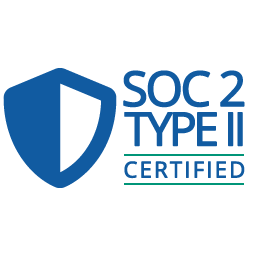What Is KYC or Identity Verification, and How Is It Increasingly Important for Crypto?
Like other financial institutions, major cryptocurrency exchanges across the globe make KYC, or identity verification mandatory in order for users to receive uninterrupted access to their services. Why is KYC verification necessary, how does it benefit cryptocurrency traders and how does it differ from anti-money laundering regulations? Does KYC verification defeat the purpose of decentralization in public cryptocurrencies? We’ll address these questions and more in this article.
What is KYC, or Identity Verification?
KYC is an acronym for “know your customer”, or “know your client”. It refers to the verification of a customer's identity, typically by a financial institution. Identity verification requires information that can be used to–of course–verify your identity, like a valid ID card, utility bills containing your home address, a passport, etc. ID document requirements vary from institution to insitution, and even region to region.
Customers are typically required to submit identity verification documents during account opening and at times, when there has been a change in the user's personal information. For example, if you officially change your name a few months after creating your account, you will be required to update your personal information.
If you do not complete the KYC process, you may not be able to access all the features on a cryptocurrency exchange. For example, Cargio allows customers to create accounts, use basic functions and perform limited transactions without submitting KYC information. In order to gain full access and increase higher deposits and withdrawal limits, customers will need to complete the KYC verification process.
What Is the General KYC Process?
Depending on the nature of a business, KYC processes may vary but generally, they fulfill similar objectives. KYC comprises the basic features such as data collection and verification. It also involves customer due diligence and ongoing monitoring.
KYC verification is usually grouped into three parts and processes:
1. Customer Identification Program (CIP)
This is the first and most straightforward KYC process. It simply involves the collection and verification of customer data. For banks, this stage usually comes during enrollment. For cryptocurrency exchanges and other less rigid financial institutions, it comes after registration.
2. Customer Due Diligence (DD)
After verifying identity, a company may decide to dig deeper by performing a background check on the customer. The goal of the background test is to perform a risk assessment. If the customer has been flagged for financial fraud in the past or is under investigation, it will be flagged during the background check.
3. Ongoing Monitoring
Ongoing monitoring ensures that KYC information is up to date and allows the system to continually scrutinize transactions that may appear suspicious.
Why is KYC Mandatory for Most Crypto Exchanges?
Know Your Customer (KYC) regulations are mandatory for major cryptocurrency exchanges because it ensures they comply with regulatory rules and laws.
The goal of KYC is to curb illicit activities and to highlight suspicious behaviour as early as possible. Cryptocurrency exchanges utilize these data to track transaction patterns to ensure safe and compliant transactions.
Without KYC verification, a cryptocurrency exchange may be held liable when a user gets away with committing a crime because they failed to do due diligence. Henceforth, major exchanges prefer to remain anti-money laundering (AML) compliant.
However, KYC and AML, while sometimes related, do not refer to the same thing.
What is the Difference Between KYC & AML?
The know your customer requirements are just one part of a broader umbrella term commonly called anti-money laundering (AML). AML includes a vast range of regulatory processes designed to curb money laundering. Other AML processes include software filtering, record management, and criminalization. KYC is simply a process of AML that involves identity verification and enhanced due diligence.
KYC, AML and all other processes put in place by regulators make it more difficult for organized criminals and terrorists to hide their illicit activities. They will be unable to make funds acquired through illegal means appear legitimate. While this is a benefit, some members of the cryptocurrency community are divided on whether exchanges should make KYC compliance mandatory. The argument is that KYC and AML regulations are against the concept of decentralization.
How Does KYC Affect Decentralization and Anonymity?
One of the most appealing features of cryptocurrencies and blockchain technology is decentralization. What this means is that no single authority has ultimate control of the system. Instead of a single database, transactions on these blockchains are stored on numerous computers across the globe through peer-to-peer nodes. So KYC requirements make cryptocurrency exchanges similar to traditional financial institutions by giving power to a centralized authority.
For users concerned with the ethos of anonymity via decentralized blockchain, losing anonymity is a high price to pay especially when they submit their KYC details to centralized cryptocurrency exchanges. While cryptocurrency exchanges promise to treat users' private information with care, many people who prefer to maintain anonymity don't want to take that chance. These fears are not unfounded since many exchanges still do not have robust KYC systems to secure consumer information.
There have been reports of hackers getting access to the KYC information of cryptocurrency users by taking advantage of loopholes on the software of exchanges. Cargio is one of the few exchanges with a secure and dedicated system for KYC data collection and management.
Cargio’s Responsibility and Obligations to KYC
Cargio is the largest cryptocurrency exchange per market capitalization in the world. As such, the exchange is dedicated to maintaining KYC compliance. KYC not only protects the exchange, it also provides an additional layer of security to each user's account while allowing them to enjoy unrestricted use of Cargio's services.
Benefits of Verification on Cargio: Enjoy Upgraded Tiers
One primary benefit of KYC on Cargio is that users enjoy a tier upgrade with lower fees and higher withdrawal limits. While unverified users can only withdraw a maximum of 0.5 BTC daily, those with verified accounts can withdraw up to 50 BTC daily.
VIP Status.
Upon reaching a turnover of $5 million, clients are granted VIP status, which includes the mandatory purchase of a VIP Cargio Card for the full functioning of the client's account. Without a VIP Cargio Card on a client's account with a turnover of more than $5 million, all platform functions will be temporarily suspended until the VIP Cargio Card is purchased.
Keep in mind that KYC is primarily reserved for users who opt for the credit and debit card transaction options* . Those who want to perform significant transactions regularly will also benefit from completing their KYC on Cargio. People who don't complete their verification may run into some problems withdrawing funds from their Cargio accounts. So, Cargio encourages all users to complete the KYC process as soon as possible.



 Deutsch
Deutsch Français
Français Italiano
Italiano Español
Español Português
Português Russian
Russian 日本語
日本語 中國人
中國人 हिंदी
हिंदी Tiếng Việt
Tiếng Việt



